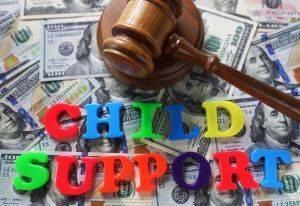Recent Blog Posts
Can Marijuana Use Affect Child Custody in an Illinois Divorce?
 As of January 1, 2020, marijuana is legal in Illinois for both medical and recreational use. However, even though the possession and use of this drug is no longer a criminal offense, people who have gotten a divorce and have at least partial custody of their children should think carefully before using marijuana. Irresponsible use of drugs or alcohol could negatively affect the amount of time you are able to spend with your child.
As of January 1, 2020, marijuana is legal in Illinois for both medical and recreational use. However, even though the possession and use of this drug is no longer a criminal offense, people who have gotten a divorce and have at least partial custody of their children should think carefully before using marijuana. Irresponsible use of drugs or alcohol could negatively affect the amount of time you are able to spend with your child.
How Marijuana Use May Affect Parenting Time and Parental Responsibility
In Illinois, child custody is referred to as the allocation of parental responsibilities, and visitation is referred to as parenting time. When determining how much time each parent will spend with their child, the court will consider what is in the child's best interests. If one parent is concerned that the other parent is using marijuana when the child is in his or her care, this issue can be brought to the attention of the courts, and the parent may ask for a modification of the parenting plan. For example, a parent may ask that the other parent's parenting time be reduced or that the parent be prohibited from using marijuana during his or her parenting time.
How Are Retirement Accounts Divided in an Illinois Divorce?
 There are many assets the courts will divide between a couple during divorce proceedings. Some of the most common include the marital home, a business acquired during the marriage, bank accounts, and vehicles. Retirement accounts are one type of asset that many people do not consider when entering into property division negotiations. However, accounts such as IRAs, 401(k)s, and pensions are subject to division between spouses, just like other marital assets. How they are divided and when the funds are distributed will depend on several different factors.
There are many assets the courts will divide between a couple during divorce proceedings. Some of the most common include the marital home, a business acquired during the marriage, bank accounts, and vehicles. Retirement accounts are one type of asset that many people do not consider when entering into property division negotiations. However, accounts such as IRAs, 401(k)s, and pensions are subject to division between spouses, just like other marital assets. How they are divided and when the funds are distributed will depend on several different factors.
Retirement Accounts as Marital Property
In Illinois, as in all other states, property is considered to be either marital property or separate property. Separate property is any property either spouse owned prior to the wedding that was brought into the marriage. Marital property, on the other hand, is any property that was acquired during the marriage by one or both spouses.
What Happens When a Parent Does Not Pay Child Support in Illinois?
 All parents in Illinois are responsible for providing financial support for their children. This is a fairly straightforward matter during a marriage, but after divorce, it can become more complicated. In many cases, the non-custodial parent is responsible for paying child support to the custodial parent, and these payments are meant to help with daily expenses and costs associated with raising the child. Sometimes, a non-custodial parent may find him or herself in financial trouble, or he or she may want to punish the other parent by refusing to pay support. However, a non-custodial parent can face severe consequences for not paying court-ordered child support. Custodial parents should be sure to understand their options for enforcing payment of child support that is owed.
All parents in Illinois are responsible for providing financial support for their children. This is a fairly straightforward matter during a marriage, but after divorce, it can become more complicated. In many cases, the non-custodial parent is responsible for paying child support to the custodial parent, and these payments are meant to help with daily expenses and costs associated with raising the child. Sometimes, a non-custodial parent may find him or herself in financial trouble, or he or she may want to punish the other parent by refusing to pay support. However, a non-custodial parent can face severe consequences for not paying court-ordered child support. Custodial parents should be sure to understand their options for enforcing payment of child support that is owed.
In some cases, a parent may work with the Illinois Department of Healthcare and Family Services' Division of Child Support Services (DCSS) to enforce payment of child support. A parent may also work with a family law attorney to take legal action through the court. The consequences a non-paying parent may face include:
Tips for Successful Co-Parenting After Your Illinois Divorce
 After getting a divorce as a parent, you and your ex-spouse will typically have to work together to co-parent your children. This can be difficult, particularly if the divorce was bitter or messy, and there are still feelings of resentment. However, it is best if you are able to work together with your ex-spouse as peacefully and respectfully as possible. Not only will everyone benefit from this cooperation, but it can help you demonstrate that you are willing to put your children's interests first, which may work in your favor if you need to modify the terms of your parenting plan in the future. Here are some ways you can encourage ongoing cooperation between co-parents after getting divorced:
After getting a divorce as a parent, you and your ex-spouse will typically have to work together to co-parent your children. This can be difficult, particularly if the divorce was bitter or messy, and there are still feelings of resentment. However, it is best if you are able to work together with your ex-spouse as peacefully and respectfully as possible. Not only will everyone benefit from this cooperation, but it can help you demonstrate that you are willing to put your children's interests first, which may work in your favor if you need to modify the terms of your parenting plan in the future. Here are some ways you can encourage ongoing cooperation between co-parents after getting divorced:
Solve Problems Together
Although you and your ex-spouse have agreed to work together as co-parents, this does not mean that any hurt or anger that built up during the divorce will just go away. However, you will still need to be able to cooperate to meet your children's needs and address any problems that may arise. When working to resolve these issues, you should try to put your feelings about your former spouse to the side and focus on how the two of you can reach a solution that will provide for your children's best interests.
What Factors are Considered in the Division of Marital Property?
 If you are getting a divorce in Illinois, you may be expecting to receive an equal 50 percent of the property you and your spouse own. However, Illinois is an “equitable distribution” state when it comes to the division of marital property. This means that property is divided fairly, but not necessarily equally. Although many divorce cases are finalized with a 50/50 split, this is not always the end result. Judges may consider a variety of factors when determining how to fairly divide assets, including:
If you are getting a divorce in Illinois, you may be expecting to receive an equal 50 percent of the property you and your spouse own. However, Illinois is an “equitable distribution” state when it comes to the division of marital property. This means that property is divided fairly, but not necessarily equally. Although many divorce cases are finalized with a 50/50 split, this is not always the end result. Judges may consider a variety of factors when determining how to fairly divide assets, including:
The Financial Position and Earning Power of Each Spouse
If one spouse is going to be in a bad financial position after the divorce, and the other spouse is very well off, a judge will take this into consideration. This is particularly true if the spouse that does not have a lot of finances stayed home to look after the household and take care of the children.
How to Protect Yourself from Financial Fraud During Divorce
 In an ideal world, everyone going through a divorce would be honest and upfront about their finances. Unfortunately, some spouses understand that marital property is going to be divided, and because of this, a person may try to hide certain assets from the other spouse during divorce. This is financial fraud, and it can result in an extremely unfair settlement for the spouse that is not hiding assets. The good news is that there are ways to protect yourself from these types of actions by your spouse.
In an ideal world, everyone going through a divorce would be honest and upfront about their finances. Unfortunately, some spouses understand that marital property is going to be divided, and because of this, a person may try to hide certain assets from the other spouse during divorce. This is financial fraud, and it can result in an extremely unfair settlement for the spouse that is not hiding assets. The good news is that there are ways to protect yourself from these types of actions by your spouse.
Understand the Potential Types of Fraud
There are many different ways a spouse can try to hide assets during a divorce. A person may temporarily give friends and relatives property, cash, or securities in order to avoid dividing these assets. In other cases, a spouse may try to hide or misreport income in order to reduce his or her spousal maintenance or child support obligations.
How Does a Promotion at Work Affect Illinois Child Support Payments?

During a divorce that involves children, one parent (typically the non-custodial parent) will usually be ordered to pay child support to the other parent. However, the one constant in life is change. When life changes affect a parent's employment and the income he or she earns, modifications to child support orders may be necessary. This can ensure that a parent will not be required to make payments that he or she cannot afford, and it can make sure that both parents are continuing to meet their children's financial needs.
Since Illinois law takes both parents' incomes into account when determining child support, if either parent receives a promotion or an increase in pay, the amount of the parents' child support obligations may need to be recalculated. If you need help modifying your child support order, you should work with an experienced family law attorney.
How Long Does a Divorce Take in Illinois?

When facing a divorce, most generally want to get the process over with as soon as possible. Unfortunately, ending a marriage takes time. Some of the time waiting for your divorce to be finalized may be out of your control. However, there are some steps you can take to expedite the process. Below are some of the main factors that influence how long a divorce will take in Illinois:
The Residency Requirement and Waiting Period
To get divorced in Illinois, at least one spouse must live in the state for at least 90 days. If you and your spouse agree that irreconcilable differences have led to the irretrievable breakdown of your marriage, you can complete your divorce with no waiting period. If either spouse does not agree to the divorce, irreconcilable differences will be presumed if the two of you live “separate and apart” for at least six months prior to the date of the divorce judgment.
The Divorce Timeline
What You Need to Know When Seeking Alimony From a High-Earning Spouse

Following a divorce, ex-spouses should be able to maintain the lifestyle they enjoyed during their marriage. When one spouse earns a large income, he or she may be required to pay spousal maintenance to his or her former partner. However, a maintenance award is not guaranteed, and this issue often results in contentious battles in divorces that involve a high net worth, particularly when one spouse has a high net worth and the other, on paper at least, does not.
If you have stayed home to care for children, or if you have been trying to get an education while your spouse has earned the majority of the family's income, you may be able to receive maintenance (formerly known as alimony) following your divorce. In order to ensure that you receive the spousal support you deserve, you will need to keep the following tips in mind:
How Can Substance Abuse Affect Divorce Proceedings?
 Sadly, substance abuse is prevalent in the United States and is the cause of many divorces. When one spouse abuses drugs or alcohol, this can make life very difficult for the other spouse. A family may struggle financially because one spouse has used marital funds to buy drugs or alcohol, and the abusive behavior of an addict may cause other family members to fear for their safety. These are just two of the issues that may present themselves in a marriage involving an addicted spouse.
Sadly, substance abuse is prevalent in the United States and is the cause of many divorces. When one spouse abuses drugs or alcohol, this can make life very difficult for the other spouse. A family may struggle financially because one spouse has used marital funds to buy drugs or alcohol, and the abusive behavior of an addict may cause other family members to fear for their safety. These are just two of the issues that may present themselves in a marriage involving an addicted spouse.
Before filing for divorce, many people only focus on how different their lives will be once the divorce is finalized. However, it is just as important to realize how substance abuse can affect the divorce process.
Child-Related Matters
A judge will certainly consider substance abuse problems when determining how to allocate parental responsibility (formerly known as child custody in Illinois). A judge's main consideration is always what is in the best interests of the child. If a parent has a substance abuse problem, the judge may feel that he or she is not able to properly care for a child. In fact, when the abuse is significant, it could endanger the child.
Introducing The Law Office of Nicholas W. Richardson
Nicholas W. Richardson is an experienced divorce lawyer and mediator whose comprehensive legal knowledge, commitment to clients and reputation for results bring lasting solutions to your problems.






